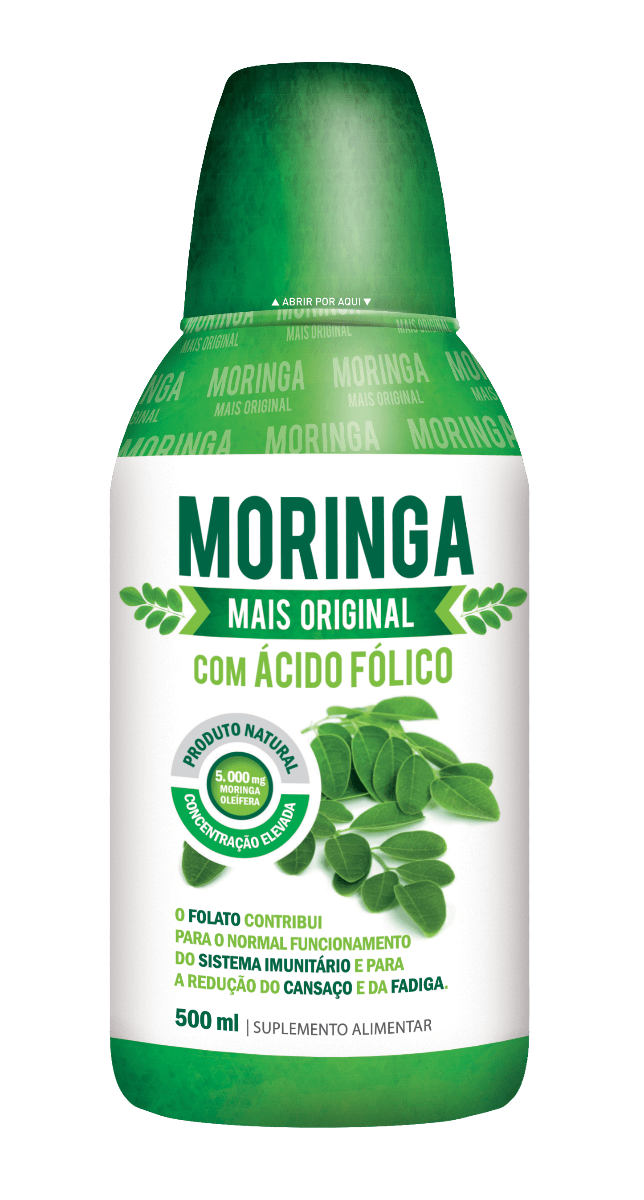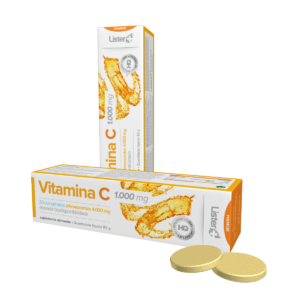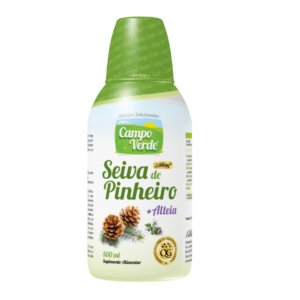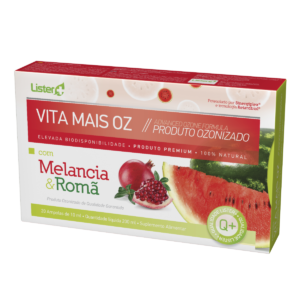ORIGINAL MORINGA 1000ml
€30.00
Moringa Mais Original is rich in vitamins and minerals that strengthen your immune system.
Original Moringa
Benefits
Regulates the functioning of the immune system
Normalizes the process in cell division
Reduces tiredness and fatigue
Stimulates the body’s natural defenses
Contributes to normal blood formation
Tones the body and mind
Ensures good digestion
Regulates intestinal transit
MORINGA PROPERTIES
Moringa’s properties include its digestive, antioxidant, anti-inflammatory, analgesic, antidiabetic, vasodilatory, anticholinergic, anti-rheumatic and healing properties.
DESCRIPTION
Seeds
Moringa seeds are taken from the pod and contain a small grain. The seed contains 30-40% fats, mostly healthy fats. Oil is taken from this part of the plant, considered one of the most balanced vegetable oils in terms of fats and one of the richest that nature offers. The seeds can be eaten roasted or raw in salads.
Flower
The delicate white flower of Moringa is also edible and has a high medicinal value. In addition to its use for decorative reasons, it is a natural aphrodisiac, which can be boiled in water and consumed as an infusion, cold drink, in salads or even for decoration in gourmet dishes.
Bark
The stem bark is used to cure eye diseases and to treat patients with delusions, to prevent the formation of lymph nodes in the neck in patients with tuberculosis. The fiber is also extracted from the shell and used in handicrafts.
Sheet
They have high nutritional value and are used as multivitamins, powerful anti-inflammatory and natural antioxidant. The leaves are taken from the tree and can be used in the kitchen in the same way as many other vegetables. One advantage is that they can be harvested during periods of drought, when no other vegetables are found. After drying it can be used in infusions.
Pod
Considered the fruit of Moringa, the pod can be eaten raw when young or cooked like any other vegetable. In its most mature state it tastes similar to fresh asparagus and can replace other vegetables in recipes.
Source
Moringa can be planted in flower beds, like a vegetable, and when the plant reaches about 30 centimeters, the foot is uprooted and the root is extracted for food consumption. The sap and the root, have all the vitamins of the plant in great concentration, being able to be eaten in salads and sauteed.
Antioxidants:
Vitamin A, Vitamin C, Vitamin E, Vitamin K, Vitamin B (Choline), Vitamin B1 (Thiamine), Vitamin B2 (Riboflavin), Vitamin B3 (Niacin), Vitamin B6, Alanine, Alpha-Carotene, Arginine, Beta-Carotene, Beta -sitosterol, caffeoylquinic acid, Campesterol, carotenoids, chlorophyll, chromium, Delta-5-Avenasterol, Delta-7-Avenasterol, glutamine, histidine, acetic indole, Indoleacetonitrile, Kaempferal, leucine, lutein, methionine, myristic acid, palmitic acid, prolamine , proline, quercetin, rutin, selenium, threonine, tryptophan, Xanthins, Xanthophyll, Zeatin, zeaxanthin, zinc
Anti-inflammatories:
Vitamin A, vitamin B1 (thiamine), vitamin C, vitamin E, arginine, Beta-sitosterol, caffeoylquinic acid, calcium, chlorophyll, copper, cystine, Omega 3, Omega 6, Omega 9, fiber, glutamine, histidine, acetic indole, Indoleacetonitrile, isoleucine, Kaempferal, leucine, magnesium, oleic acid, phenylalanine, potassium, quercetin, rutin, selenium, stigmasterol, sulfur, tryptophan, tyrosine, zeatin, zinc.
Essential amino acids found in Moringa.
Isoleucine – stabilizes blood sugar levels. A deficiency in isoleucine can lead to blood sugar levels and a lack of energy. They also contribute to (when combined with leucine and valine) repairing muscle tissue as well as increasing energy and stamina.
Leucine – reduces high blood sugar levels, induces the production of growth hormones.
Valine – maintains muscle metabolism, repairs tissue and maintains an adequate nitrogen balance in the body. It also works as a source of great energy for the entire body.
Lysine – contributes to the production of antibodies, enzymes, hormones and collagen, it also assists the assimilation of calcium in the body and plays an important role in the construction of proteins in muscles and bones.
Methionine and cystine – The body easily converts to each other depending on the needs of bodies. Methionine is the main source of sulfur in the body. Sulfur is used by the body for the growth of skin, hair and nails. Sulfur helps the production of lecithin in the liver which lowers cholesterol and fatty liver.
Tryptophan – helps the body make vitamin B3, the body needs vitamin B3 to maintain levels of serotonin and melatonin. Serotonin and melatonin are vital for healthy brain function, serotonin acts as a calming agent and helps control mood and appetite. Melatonin is important for a good night’s sleep.
Phenylalanine – helps the nervous system and memory. It is also being used to treat rheumatoid arthritis and osteoporosis. Helps to reduce pain and inflammation.
Threonine – assists the cardiovascular system of the body, liver, central nervous system and immune system. It also helps the skin, collagen, muscle tissue, bones and enamel teeth.
Histidine – is released into the bloodstream during an allergic reaction. It is necessary for the manufacture of red and white blood cells. Helps repair tissue and maintains myelin sheaths that protect nerves. It protects the body from radiation and the removal of heavy metals from the body. Increases blood flow to the sexual organs.
Other nutrients:
Selenium, Superoxide Dismutase, Xanthins, Xanthophyll, Zinc, Lutein, Neoxanthin, Violaxanthin, Fiber, Flavonoids, Folic Acid (Folic Acid), Iodine, Iron, Molybdenum, Phosphorus, Arachidic Acid, Beenic Acid, Gadoleic Acid, Lignoceric Acid, Miristic Acid , palmitic acid, Palrnitoleic stearic acid, – (Alpha-L-Rhamnosyloxy) 4-Benzylglucosinolate, 4- (alpha -L-Rhamnosyloxy), Senzylisothiocyanate; Niazinin A, Niazinin B, Niaziminins A B, Niazimicin, 28-Isoavenasterol, Brassicasterol, Campestanol, Campesterol, Cholesterol, Clerosterol, Delta-5-Avenasterol, Delta-7, 14-stigmastanol, Delta-7-Avenasterol, Ergostadienol.
Purified water
Purified water is drinking water treated by reverse osmosis (transformation of salt or saline water into drinking water) or distillation, without minerals in its composition. Because it is filtered and potable water, it is free of undesirable substances such as parasites, chlorine, fluoride or dioxins. The benefits of its consumption are help in bowel regulation, skin rejuvenation, hydration of nails and hair and reduction of hypertension along with improvement of blood circulation.
Moringa
The moringa belongs to the Moringaceae family. It is a plant originally from India and Nigeria, and grows mainly in tropical and subtropical semi-arid areas. The benefits of moringa derive from its high concentration of bio nutrients available; contains high levels of vitamin A (beta-carotene), vitamin B1 (thiamine), vitamin B2 (riboflavin), vitamin B3 (niacin), vitamin B6 (pyridoxine), vitamin B7 (biotin), vitamin C (ascorbic acid), vitamin D ( cholecalciferol), vitamin E (tocopherol) and vitamin K (anti-hemorrhagic). Moringa is used to treat respiratory diseases, decrease anxiety, weight loss and control the concentration of glucose in the blood (in diabetic people).
Its main benefits are: it increases the respiratory capacity, protects the heart, prevents diabetes, regulates blood pressure, assists in weight loss, prevents and fights anemia, increases the body’s defenses, protects and moisturizes the skin, helps treating hemorrhoids, improves eyesight and helps to lessen the effects of menopause.
Schisandra chinensis
Schisandra chinensis is a type of medicinal herb with several healing properties. It is known for being a “herb of five flavors” for having a bitter, sweet, sour, salty and spicy flavor. Its main benefits are the maintenance of mental health, anti-inflammatory action, help in reducing stress, treating asthma, preventing diabetes, helping with vision and protecting the skin.
Ilex paraguariensis (yerba mate)
Yerba mate is a medicinal plant that contains caffeine, theophylline, theobromine, folic acid, tannins, minerals and vitamins A, B1, C and E, which act as an antioxidant, laxative, stimulant, diuretic and aphrodisiac.
This herb helps to fight LDL (bad cholesterol), increase HDL (good cholesterol), lose weight, satiate hunger, stimulate brain function, decrease glucose, improve blood function, facilitate digestion, cleanse the skin and contribute to improve the cardiovascular and respiratory system.
Nasturtium officinale (Watercress)
Watercress is a vegetable rich in vitamins B, A, C and K, potassium, iron, calcium and phosphorus. It has a very characteristic flavor and aroma and is widely used in soups, salads and stews. It is a vegetable with immense benefits such as antioxidant power that boosts immunity and helps fight infections. The consumption of watercress helps to reduce blood pressure, make bones and muscles healthier, prevent diabetes, help with weight loss, relieve respiratory problems, provide energy and help fight cancer.
Folic acid
Folic acid, often referred to as vitamin B9, is involved in various functions in our body, mainly in the formation of DNA and the genetic content of cells. Folic acid has very important benefits for our body such as maintaining brain health, preventing anemia, cardiovascular diseases and some types of cancer. This vitamin is very important for maintaining the health of the brain, the vascular system and the immune system.
L-Ascorbic Acid
Vitamin C (L-ascorbic acid) is essential for the formation of collagen, which is essential for the normal functioning of blood vessels, bones, cartilage, gums, skin and teeth.
It plays an important role in eliminating free radicals and increasing energy levels. By increasing the absorption of iron in food, it contributes to the prevention of low hemoglobin levels. Iron levels in our body are crucial for energy levels. More iron absorption means more energy, less tiredness and less fatigue.
Vitamin C intake is not directly related to fighting anemia, but increasing the body’s absorption of iron helps, as most cases of anemia are caused by iron deficiency.
When we talk about vitamin C, we cannot forget its importance for the functioning of the nervous system. With its antioxidant action, it prevents brain damage and aging by eliminating free radicals naturally produced by cellular metabolism and the neuronal energy consumption system. Vitamin C can also be an important ally in the prevention of neurodegenerative diseases, since it is the production of free radicals that causes neuronal degeneration.
Xanthan gum
Xanthan gum is a polysaccharide widely used in food products that helps ingredients mix effectively. It is also used to treat constipation and regulate cholesterol levels.
Potassium Citrate
Potassium citrate is the potassium salt of citric acid, found naturally in the human body. Its assigned functions are the stabilizing, acidity regulating and sequestering function. Its main benefits are: its excellent renal function (contributes to the elimination of kidney stones) and the supply of minerals (indirectly contributes to muscle development).
Potassium sorbate
Potassium sorbate or potassium salt of sorbic acid works as a food preservative, mild, fungicidal and bactericidal of high efficiency and safety that does not change the taste of food. It is the salt resulting from the reaction of sorbic acid and potassium hydroxide, once diluted it releases sorbic acid. It’s the salt resulting from the reaction of sober acid and potassium hydroxide, once diluted it releases sorbic acid. Sorbate delay and prevent the development of microorganisms such as bacteria, mold and fungi by reducing water and increasing acidity, and preserve the flavor, color, texture and nutritional value of the foods to which they are added.
Sodium benzonate
Sodium benzoate is the sodium salt of benzoic acid and functions as a food preservative. With antifungal properties, it protects food against the invasion of fungi that can cause disease. Sodium benzoate balances the pH level of food and increases the total acidity of food. By lowering the pH, sodium benzoate creates a barrier where fungi cannot grow and spread.
What for?
Moringa is the food supplement that will help you improve your quality of life and prolong it, improving the function of the brain, bones, hormones, digestion, among other areas of the body.
For whom?
Moringa is a product suitable for the youngest, adults and the elderly. Its various health benefits make this natural product an essential product in everyone’s life.
| Ingredients | |
| Moringa | Equiv. 8.000mg. |
| Schisandra chinensis | 400 mg. |
| Ilex paraguariensis | 300 mg. |
| Geranium robertianum | 300 mg. |
| Nasturtium officinale | 300 mg. |
| Folic acid | 200 mg. |
INGREDIENTS
Purified water; Moringa (Moringa oleifera); Schisandra chinensis; Ilex paraguariensis; Geranium robertianum; Nasturtium officinale; Folic acid; L-Ascorbic Acid (antioxidant); Xanthan gum (stabilizer); Potassium citrate (acidity regulator); Potassium sorbate and sodium benzoate (preservatives); Aroma identical to natural; Sucralose (sweetener)
PRESENTATION
Bottle with 1,000 ml.
HOW TO TAKE
30 ml. once a day on an empty stomach with a glass of water.
SCIENTIFIC ARTICLES
- Antioxidant Beverage Leaf: Antioxidant drink from Moringa leaf
- Antioxidant, Antimicrobial, Phytochemical: Moringa’s antioxidant, antimicrobial and phytochemical characteristics
- FQ and Food App Oil: Physical chemical properties and potential food applications of Moringa oil
- Health Benefits 2007: A plant with several medicinal uses
- Health Benefits 2014: Benefits of Moringa oil for human health
- Moringa Leaf FQ and Sensory Properties of Goat Meal: Physico-chemical and sensory changes in goats fed Moringa leaves
- New Anticancer Activity: Moringa leaf extracts with new anti-cancer activity
- Natural Coagulant Seeds: Moringa seeds as a natural coagulant
- Enhancement of Human Skin: Revitalization of the face skin through the use of Moringa leaf extract cream
Related
| Weight | 1 g |
|---|








Reviews
There are no reviews yet.